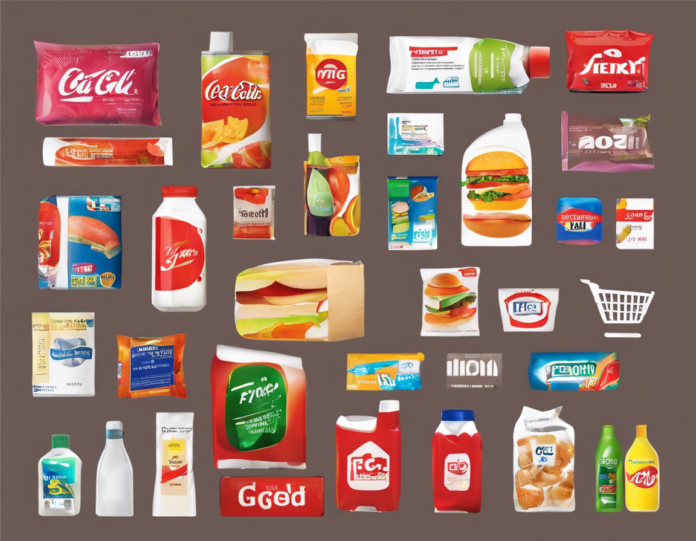Fast-Moving Consumer Goods (FMCG) are products that are sold quickly and at relatively low-cost. Despite the low individual profit margins on each item, FMCG make up a significant portion of the consumer market due to their consistent demand and high turnover rate. These products are typically non-durable goods that are consumed frequently on a regular basis, making them a staple in households across the world. In this article, we will delve into the world of FMCG, exploring what they are, their characteristics, distribution channels, marketing strategies, and their significance in the global economy.
What are Fast-Moving Consumer Goods (FMCG)?
Fast-Moving Consumer Goods (FMCG), also known as Consumer Packaged Goods (CPG), are everyday products that are consumed or used by individuals on a daily basis. These products are generally low-cost, have a short shelf life, and are easy to replace. FMCG can encompass a wide range of items including food and beverage products, personal care products, household items, and over-the-counter drugs. Examples of FMCG include toiletries, soft drinks, packaged foods, cleaning products, and basic pharmaceuticals.
Characteristics of FMCG
- High Turnover Rate: FMCG have a high turnover rate, meaning they are sold quickly and in large volumes.
- Low Profit Margins: Individual profit margins on FMCG products are typically low due to intense competition and pricing pressure.
- Frequent Consumption: FMCG are products that are consumed or used regularly, leading to repeat purchases.
- Short Shelf Life: These products have a limited shelf life and can perish or expire within a short period of time.
- Branding and Marketing: Strong branding and effective marketing strategies are crucial for success in the competitive FMCG industry.
Distribution Channels for FMCG
FMCG are typically distributed through a variety of channels to reach consumers effectively. Some common distribution channels for FMCG include:
- Retail Stores: FMCG are often sold through supermarkets, convenience stores, hypermarkets, and specialty retail outlets.
- Online Retail: The rise of e-commerce has enabled FMCG brands to reach a wider audience through online retailers and platforms.
- Wholesale: FMCG manufacturers often distribute their products to wholesalers who then sell them to retailers.
- Direct Selling: Some FMCG companies use direct selling channels such as door-to-door sales or multi-level marketing.
Marketing Strategies for FMCG
In the competitive FMCG industry, effective marketing strategies are essential to stand out and attract consumers. Some key marketing strategies for FMCG include:
- Brand Positioning: Establishing a strong brand identity and positioning in the market.
- Product Packaging: Eye-catching and informative packaging can influence consumer purchasing decisions.
- Advertising: Utilizing various advertising channels such as TV, digital, and print to reach target audiences.
- Promotions: Offering discounts, coupons, and other promotional activities to drive sales.
- Consumer Engagement: Building relationships with consumers through social media, influencer partnerships, and experiential marketing.
Significance of FMCG in the Global Economy
FMCG play a crucial role in the global economy due to their widespread demand and consumption. Some key points highlighting the significance of FMCG include:
- Economic Growth: The FMCG industry contributes significantly to economic growth and employment opportunities.
- Consumer Spending: FMCG represent a large share of household spending, reflecting consumer preferences and trends.
- Supply Chain Efficiency: FMCG companies rely on efficient supply chains to meet consumer demand and ensure product availability.
- Global Reach: FMCG brands often have a global presence, catering to diverse markets and consumer needs.
Frequently Asked Questions (FAQs) about FMCG
1. What are the top FMCG companies in the world?
Some of the top FMCG companies globally include Procter & Gamble, Nestlé, PepsiCo, Unilever, and Coca-Cola.
2. How is the growth of e-commerce impacting the FMCG industry?
The growth of e-commerce has transformed the way FMCG products are bought and sold, leading to increased online sales and changing consumer shopping behaviors.
3. How do FMCG companies manage their supply chains effectively?
FMCG companies often employ advanced supply chain management systems to ensure efficient production, distribution, and inventory management.
4. What are some sustainable practices adopted by FMCG companies?
Many FMCG companies are focusing on sustainability initiatives such as reducing packaging waste, sourcing ethically, and promoting eco-friendly products.
5. How do changing consumer preferences impact the FMCG industry?
Consumer preferences for healthier, sustainable, and convenient products drive innovation and influence the product offerings of FMCG companies.
In conclusion, FMCG are an integral part of our daily lives, providing us with essential products that we rely on for our everyday needs. The FMCG industry continues to evolve and adapt to changing consumer trends, technological advancements, and global market dynamics, making it a dynamic and competitive sector in the business world.
